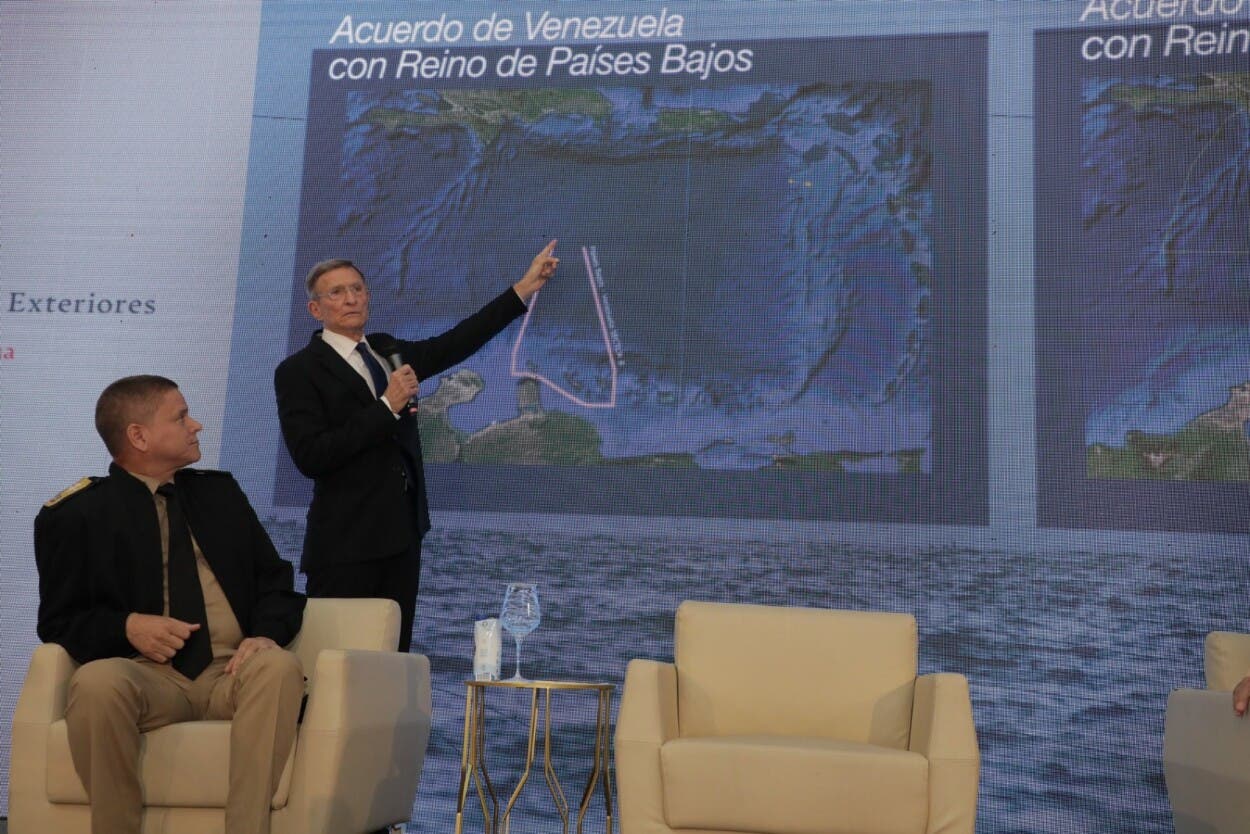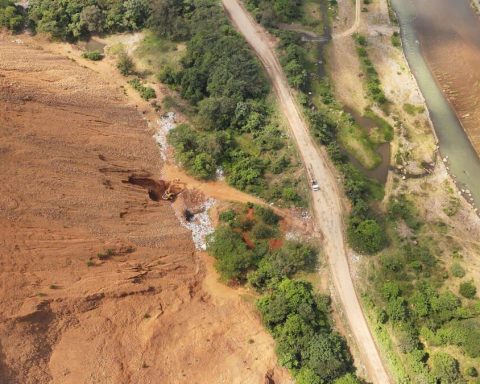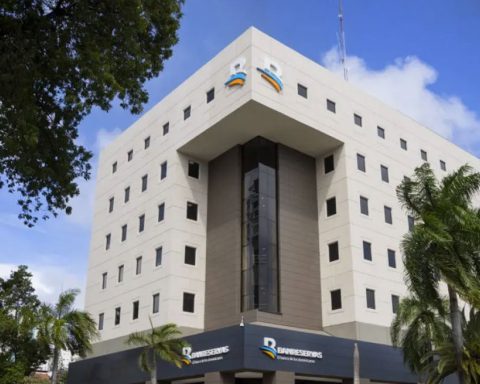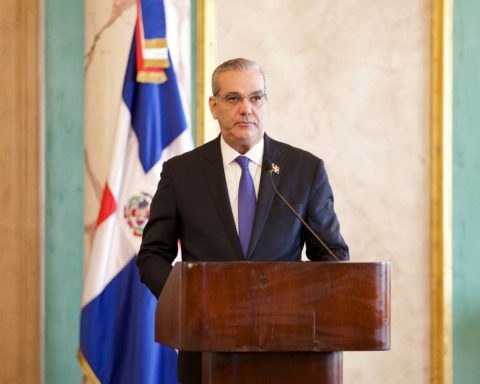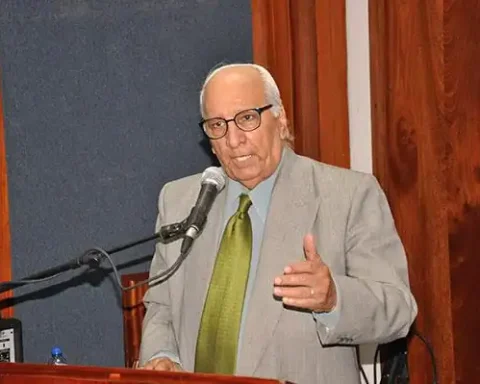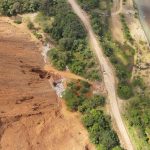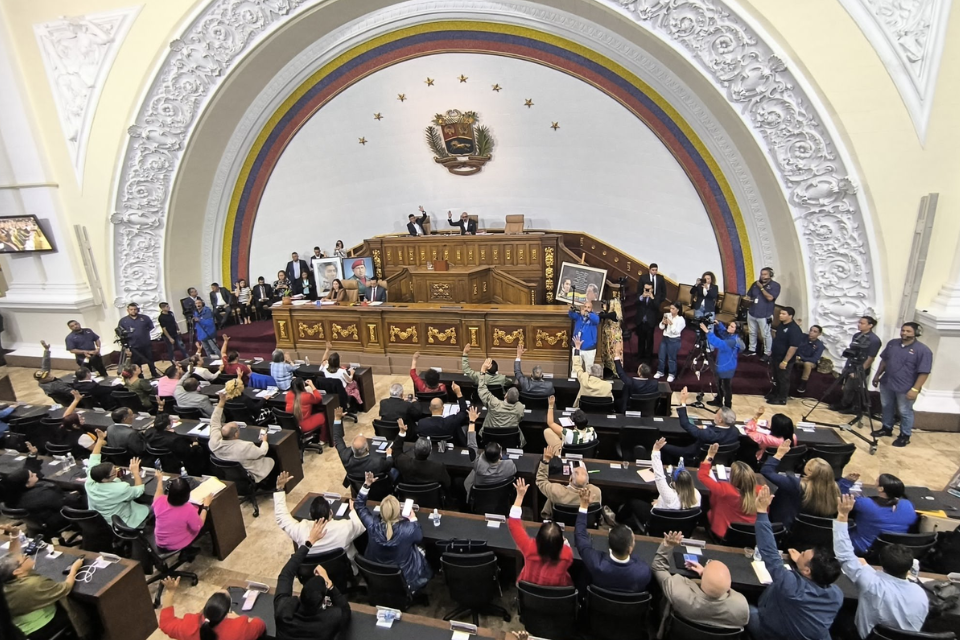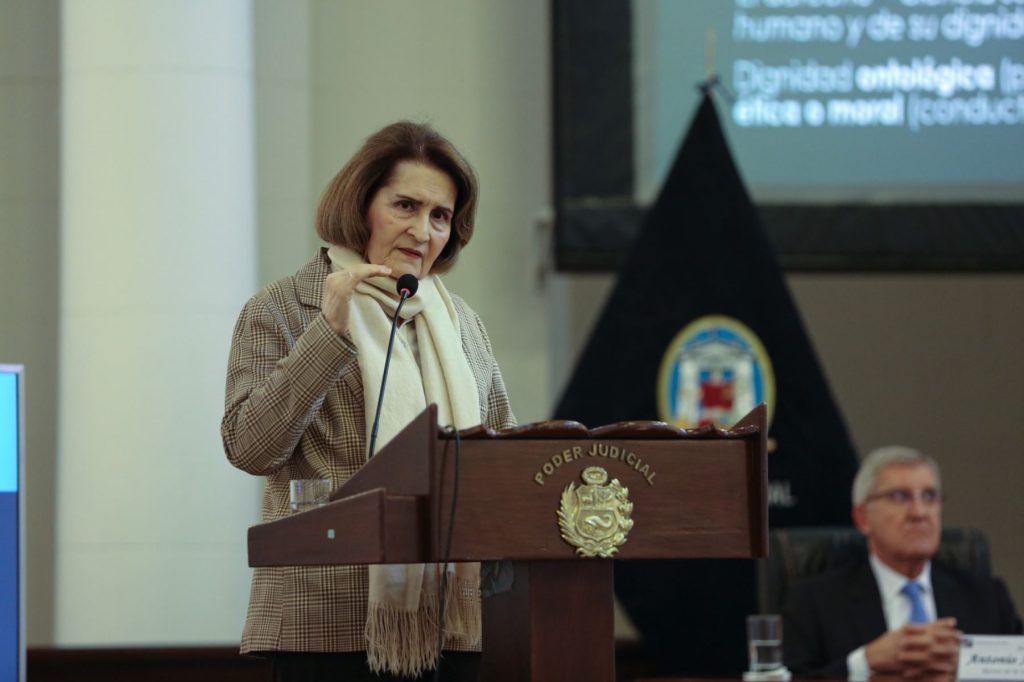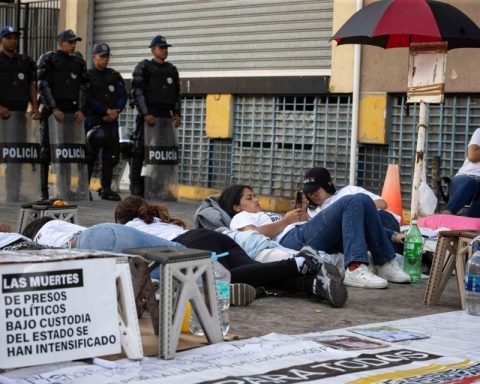Santo Domingo. – The Dominican Government categorically denied this Thursday that it had ceded maritime space to the Netherlands in its territories in the Caribbean as has been reported after the Constitutional Court (TC) had endorsed the agreement between both countries.
During a press conference, the Dominican Foreign Minister, Roberto Alvarezsaid that on the contrary, the Dominican Government gained 11 square nautical miles (37.7 square kilometers) of maritime space, consolidating its sovereignty and expanding its maritime jurisdiction with the signing of the Maritime Delimitation Agreement with the Kingdom of the Netherlands (Holland).
The negotiations between both States were authorized in the Administration of President Danilo Medina (2012-2020) and were led by the National Commission for the Delimitation of Maritime Borders created by decree 237-18). The agreement has not yet been ratified by the National Congress, although the TC has already said that it has no conflict with the constitution.
The Minister of Foreign Affairs explained that the signing of the agreement, which took place on July 5, 2021, establishes a regulatory framework for maritime delimitation and exploitation rights, contributing significantly to regional stability.
Álvarez highlighted that the agreement was reached by applying the principle of equidistance and following the previous experience of negotiations with Colombia and Venezuela, which strengthened the country’s position in the process. Furthermore, he stated that it is a unique and exclusive negotiation on the southern maritime border of the Dominican Republic.
Agreement Benefits
The Dominican Foreign Minister expressed that the agreement guarantees that the Dominican Republic preserves its status as an archipelagic State, obtaining clarity about its marine soil and subsoil, as well as its exclusive economic zone and fishing rights.
“This advance also allows the exploration and exploitation of geological structures and mineral deposits, ensuring that the country maintains control over its natural resources,” he said.
He pointed out that “this negotiation was carried out in compliance with the Constitution and the laws, the norms of international law, we achieved the best possible agreement in the most favorable terms for the Dominican Republic that the law of the sea allows, we used equity as the guide in the negotiations. and we gained sea.”
Legal Support and International Endorsement
Álvarez recalled that this agreement was supported by the Constitutional Court, which declared it in a ruling in accordance with the Constitution of the Republic, in which it ruled that the principle of equidistance, applied to define territorial limits, “is the most equitable solution for the delimitation.” maritime territorial between both States.”
This is so, as the chancellor explained, because the United Nations Convention on the Rights of the Sea (UNCLOS) does not define or mention how an equitable delimitation process is carried out, so according to jurisprudence, to reach To achieve an equitable solution, three steps must be followed: construct an equidistant median line, verify if there are relevant or special circumstances that prevent drawing this line and that there is no disproportionality that exceeds 9 to 1.
“Disproportion that does not occur in the negotiation with the Netherlands,” he stressed.
Negotiation process and strategic alliances
He indicated that the maritime delimitation process began in 2019, for which the Minister of Foreign Affairs said that, supporting the continuity of the State, the Government of President Luis Abinader completed the negotiations with the Netherlands and submitted the signed agreement to the preventive control of the Court. Constitutional after establishing a solid position that was accepted by the Kingdom of the Netherlands through a diplomatic note.

“The negotiation meetings had the technical support and favorable opinions of the Ministry of Defense, the Legal Consultancy of the Executive Branch, the Navy of the Dominican Republic, the National Authority for Maritime Affairs (ANAMAR), member institutions of the Commission with the support of the Military Cartographic Institute and the National Geographic Institute; team that has been essential in the defense of Dominican maritime interests and in the formulation of a strategic position that would consolidate the rights and sovereignty of the country,” added the chancellor.
